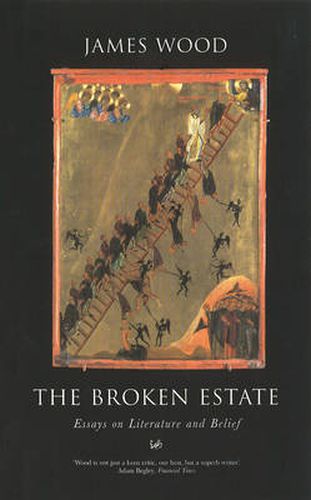Readings Newsletter
Become a Readings Member to make your shopping experience even easier.
Sign in or sign up for free!
You’re not far away from qualifying for FREE standard shipping within Australia
You’ve qualified for FREE standard shipping within Australia
The cart is loading…






In a series of long essays, James Wood examines the connection between literature and religious belief, in a startlingly wide group of writers. Wood re-appraises the writing of such figures as Thomas More, Jane Austen, Herman Melville, Anton Chekhov, Thomas Mann, Nikolai Gogol, Gustave Flaubert and Virginia Woolf, vigorously reading them against the grain of received opinion, and illuminatingly relating them to questions of religious and phiosophical belief Contemporary writers, such as Martin Amis, Thomas Pynchon and George Steiner, are also discussed, with the boldness and attention to language that have made Wood such an influential and controversial figure. Writing here about his own childhood struggle to believe, Wood says that ‘the child of evangelism if he does not believe, inherits nevertheless a suspicion of indifference. ’ Wood brings that suspicion to bear on literture itself. The result is a unique book of criticism. Illuminating and exciting and compelling…one never doubts the soundness of his judgements…There is wonderful writing throughout this collection.
$9.00 standard shipping within Australia
FREE standard shipping within Australia for orders over $100.00
Express & International shipping calculated at checkout
Stock availability can be subject to change without notice. We recommend calling the shop or contacting our online team to check availability of low stock items. Please see our Shopping Online page for more details.
In a series of long essays, James Wood examines the connection between literature and religious belief, in a startlingly wide group of writers. Wood re-appraises the writing of such figures as Thomas More, Jane Austen, Herman Melville, Anton Chekhov, Thomas Mann, Nikolai Gogol, Gustave Flaubert and Virginia Woolf, vigorously reading them against the grain of received opinion, and illuminatingly relating them to questions of religious and phiosophical belief Contemporary writers, such as Martin Amis, Thomas Pynchon and George Steiner, are also discussed, with the boldness and attention to language that have made Wood such an influential and controversial figure. Writing here about his own childhood struggle to believe, Wood says that ‘the child of evangelism if he does not believe, inherits nevertheless a suspicion of indifference. ’ Wood brings that suspicion to bear on literture itself. The result is a unique book of criticism. Illuminating and exciting and compelling…one never doubts the soundness of his judgements…There is wonderful writing throughout this collection.